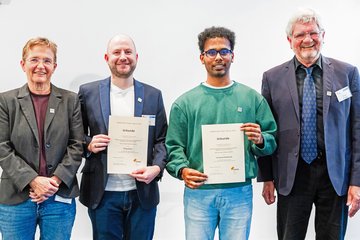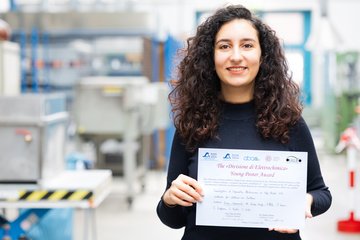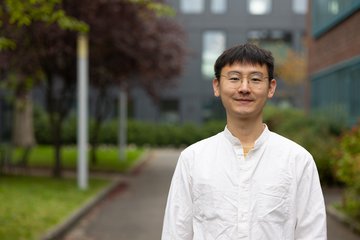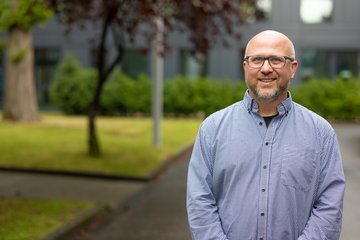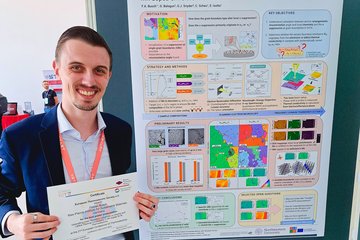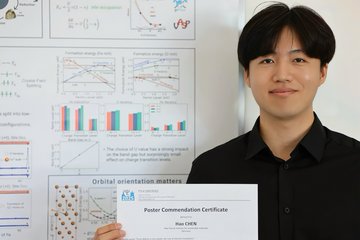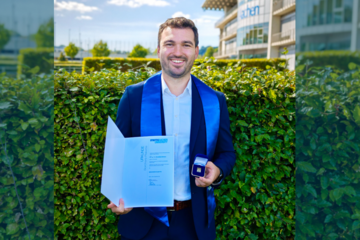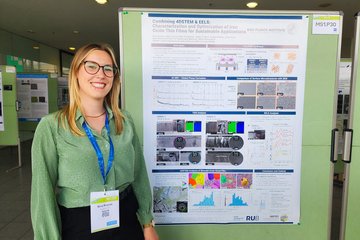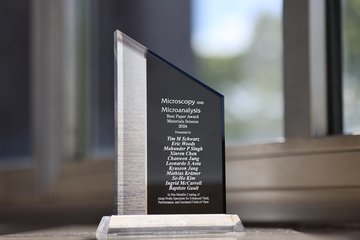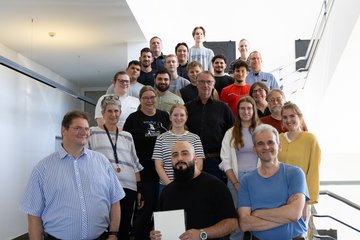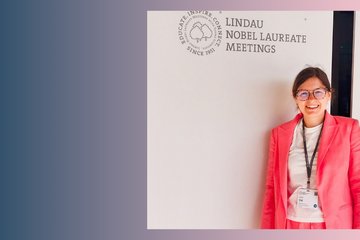Charu Negi receives Best Poster Award
Developing advanced coatings for corrosion protection
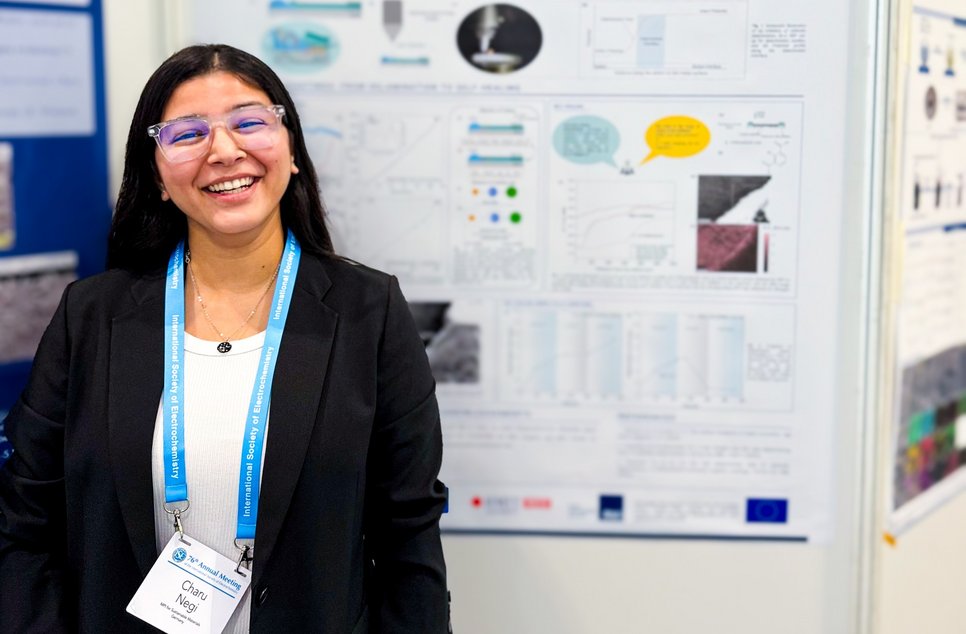
Corrosion is one of the greatest threats to the longevity of metal structures such as bridges, pipelines, and vehicles causing damage worth an estimated 3-4% of the world’s gross domestic product each year. While organic coatings are widely used to protect metals, once they are damaged or defective, corrosion can spread underneath, eventually leading to failure. For her research on understanding the processes and improving such coatings, Charu Negi, PhD researcher at the Max Planck Institute for Sustainable Materials (MPI-SusMat), has been awarded the Best Poster Award at the 76th Annual Meeting of the International Society of Electrochemistry (ISE-2025), held in Mainz.
“I am thrilled to have won the Best Poster Award. I want to thank all my supervisors for their constructive feedback and unwavering support,” says Negi. Her work focuses on organic coating delamination that is a key degradation mechanism in which corrosion at defect sites or at the interface gradually undermines adhesion between coating and metal. Using Scanning Kelvin Probe measurements and surface analysis techniques, she was able to show how corrosion initiates and progresses at the coating–metal interface, and how self-healing coatings can counteract this process. Such insights are crucial for developing more durable and efficient protective layers. “The collaborative aspect of my PhD is the best part. My primary goal is to contribute to a fundamental understanding of how self-healing at the interface actually works, and the project is the perfect platform for that, especially with the opportunity to learn from a highly experienced supervisory team from MPI-SusMat, industry partner, and RMIT University,” adds Negi.
Charu Negi completed her bachelor’s and master’s studies at Doon University in Dehradun, India, before joining MPI-SusMat in 2023 with the support of a Marie Skłodowska-Curie PhD Fellowship. As part of her fellowship, she participates in the RMIT European Doctoral Innovators (REDI) programme, which enables collaborations with RMIT University in Australia and with an industrial partner in Germany.
The International Society of Electrochemistry fosters global exchange in electrochemical science and technology. Its Annual Meeting brings together international experts from academia and industry and is hosted in a different country each year. 1106 posters were presented under this year’s theme ““Electrochemistry: From Basic Insights to Sustainable Technologies”.

